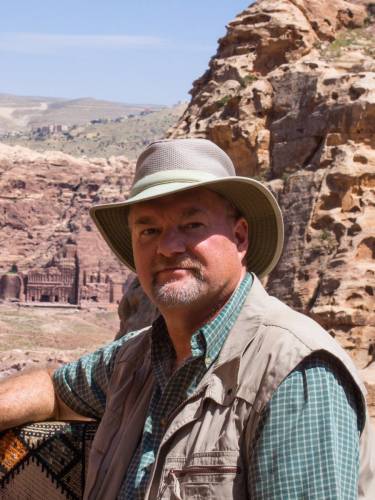Peacemaking and practice: living water
By Doug Dicks
Psalm 36:7–9
They feast on the abundance of your house, and you give them drink from the river of your delights.
For with you is the fountain of life; in your light we see light.
Reflection: The Applied Research Institute of Jerusalem is a non-profit organization dedicated to promoting sustainable development in the occupied Palestinian territories and the self-reliance of the Palestinian people through greater control over their natural resources. Water is one of those resources. Recently, there has been considerable interest in the notion of harvesting rainwater. The idea is to renovate and recondition the ancient Roman cisterns that exist throughout the southern part of the West Bank, between Bethlehem and Hebron. Eighty-three such cisterns have been identified, and if cleaned, replastered, and outfitted, could be potential sources of water-holding catchments for farmers and those who raise livestock.
Of particular interest is the potential for these cisterns to contribute to the general water supply in the West Bank.
For Palestinians, both political and military restraints are the major cause of today’s water shortages. And that lack of access to water is a major contributor to the conflict today. Palestinian water consumption is approximately 55 liters per person, per day, while the minimum recommendation from the World Health Organization is 100 liters per person, per day.
There is hope that these ancient cisterns might provide a new — yet old — solution to obtaining water in this semi-arid part of the world. The result would be another step along the peace process between Palestinians and Israelis.
Action: How much water do you consume on a daily basis? How might you conserve more water? What other resources might you be more sparing with?
Prayer: God of nature and God of rain, pour out your Holy Spirit of love, grace, and mercy on all who thirst for your living water. Open the eyes of those of us who live with an abundance of resources, to become mindful of those who manage with so little. In Christ’s precious name we pray, Amen.

Doug Dicks has returned to his spiritual home as Presbyterian World Mission associate for ecumenical partnerships in the Middle East. He is serving as facilitator for education for justice and peacemaking at the invitation of St. Andrew’s Scots Memorial Church in Jerusalem. His work enables the larger PC(USA) community to advocate for peace and justice in Israel and Palestine.
This year’s A Season of Peace resources are designed to help Presbyterians explore different forms and lenses for peacemaking. From the personal level to global issues like human trafficking and sustainable development, these reflections and prayers will help grow the faith and witness of the whole church. Through the days of this year’s A Season of Peace, we are invited to reflect on:
- Peace that passes understanding: personal testimonies of faith and peace within self, within families, within communities
- Partners in peace: interfaith work for peace and justice, building peace between us while witnessing to peace in our wider world
- Go and see: reflections from travel study seminar participants
- The church and its witness: reflections on addressing trafficking in its varied forms
- Peacemaking and practice: stories and reflections on building bridges and crossing divides
Each author represents a variety of vocations and experiences in peacemaking efforts. Individuals and households are invited to make use of these daily reflections beginning on Sunday, September 2, and concluding on World Communion Sunday, October 7.
